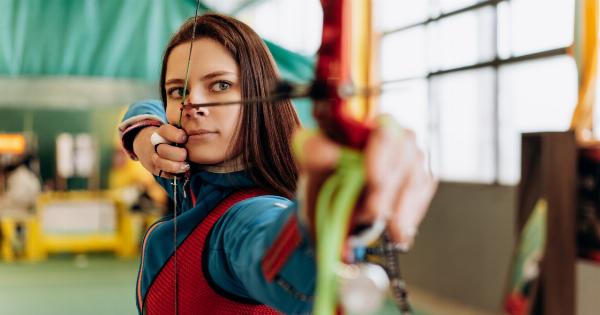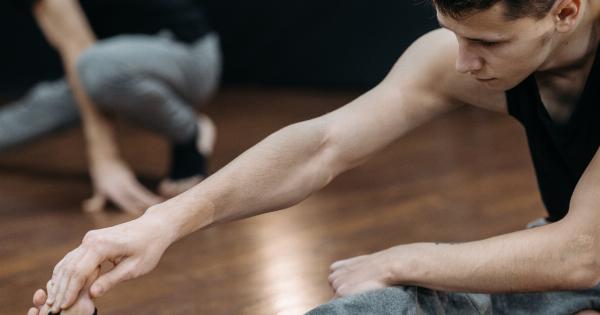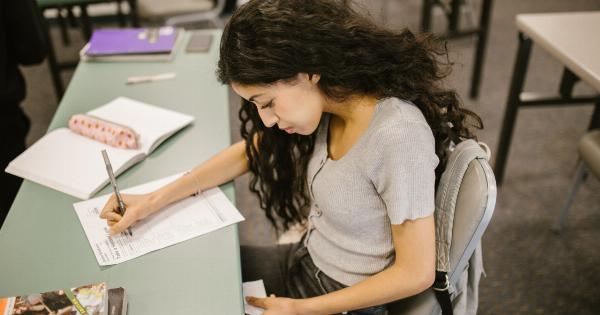Stereotypes are commonly held beliefs or assumptions about certain groups of people. They are often oversimplified and can be based on inaccurate information or biased views.
While stereotypes can affect any individual or group, they particularly impact women by shaping societal expectations and influencing their self-confidence. The detrimental impact of stereotypes on women’s confidence cannot be understated, as they perpetuate harmful narratives and limit opportunities for personal and professional growth.
The Pressure to Conform
One of the primary ways stereotypes impact women’s confidence is through the pressure to conform to societal expectations. From an early age, girls are bombarded with messages about how they should look, behave, and pursue their goals.
These expectations often revolve around traditional gender roles, reinforcing the idea that women should be nurturing, submissive, and focused on their appearance.
When women are unable or unwilling to conform to these stereotypes, they may face ridicule, judgment, or exclusion. This constant pressure to fit into narrow molds erodes their self-confidence and creates a sense of inadequacy.
Women who don’t subscribe to traditional gender roles may doubt their abilities, struggle with their identity, and question their worth.
Negative Body Image
Stereotypes related to physical appearance have a significant impact on women’s confidence. Media, advertising, and societal standards often portray an unrealistic and unattainable ideal of beauty that reinforces harmful stereotypes.
Women are bombarded with images of flawless bodies, flawless skin, and flawless hair, creating an unattainable standard they feel compelled to meet.
These messages can lead to body dissatisfaction and a negative body image, ultimately impacting women’s overall self-esteem. Constantly comparing themselves to idealized images, women may experience feelings of shame, insecurity, and unworthiness.
This negative body image can affect their mental health, relationships, and daily functioning.
Undermining Abilities and Ambitions
Stereotypes often undermine women’s abilities and ambitions, limiting their belief in what they can achieve. The persistent belief that women are less competent or suited for certain roles devalues their skills, talents, and potential.
Women who aspire to leadership positions, traditionally held by men, often face skepticism, prejudice, and bias.
These stereotypes discourage women from pursuing challenging careers, advancing in their fields, or taking on leadership roles.
The resulting lack of self-confidence can manifest as imposter syndrome, where women doubt their accomplishments and fear being exposed as frauds. This detrimental cycle perpetuates inequalities and prevents women from achieving their full potential.
The Confidence Gap
Studies have shown that women often underestimate their abilities and accomplishments compared to men. This gap in confidence is attributed to the impact of stereotypes and societal expectations.
Women may hesitate to take on new opportunities, speak up in meetings, or negotiate for promotions due to a lack of confidence in their skills.
As a result, women may miss out on professional advancements and personal growth opportunities.
The confidence gap perpetuates gender disparities in various industries and can contribute to the glass ceiling effect, where women face invisible barriers preventing them from reaching high-level positions.
The Importance of Representation
A key element in combating the harmful impact of stereotypes on women’s confidence is the representation of diverse role models.
When women see others who challenge stereotypes and succeed in various fields, it inspires them to pursue their goals with confidence. Realistic representation helps break down stereotypes and fosters a sense of belonging and possibility.
Highlighting achievements of women across different industries provides young girls and women with role models who have shattered the glass ceiling and achieved success on their own terms.
This exposure to diverse role models can empower women to challenge stereotypes, pursue their dreams, and overcome self-doubt.
Empowering Women Through Education
Educational institutions play a vital role in empowering women to defy stereotypes and build confidence.
By incorporating curricula that challenge gender norms and promote gender equality, schools can foster an inclusive environment that encourages women’s personal and academic growth.
Teaching critical thinking skills and promoting positive self-image can equip women with the tools to question stereotypes and develop a resilient mindset.
Additionally, providing mentorship programs and opportunities for girls and women to engage with successful female leaders can help bridge the confidence gap and inspire future generations.
Supportive Networks and Communities
Creating supportive networks and communities is crucial in combatting the damaging effects of stereotypes on women’s confidence.
Surrounding oneself with individuals who uplift and challenge traditional gender roles can help women develop a strong sense of self-worth and resilience.
Organizations and online communities that provide safe spaces for women to share experiences, challenges, and successes can be immensely empowering.
These networks allow women to find support, encouragement, and validation beyond societal expectations, fostering a sense of belonging and boosting confidence.
Challenging Stereotypes Every Day
To combat the harmful impact of stereotypes on women’s confidence, it is essential for individuals to challenge these stereotypes every day.
Recognizing and questioning one’s own biases and assumptions can contribute to a more inclusive and supportive environment for women.
Encouraging open dialogue about the harmful impact of stereotypes and promoting gender equality can contribute to dismantling societal expectations.
By educating others and actively promoting diverse and inclusive narratives, individuals can help create a future where women’s confidence is not hindered by stereotypes.































